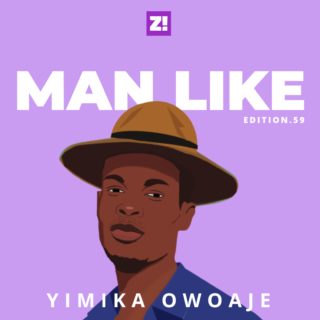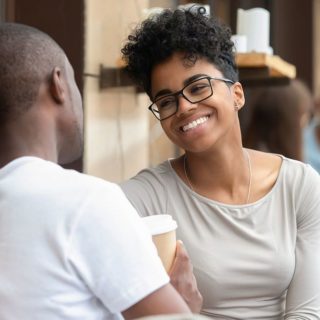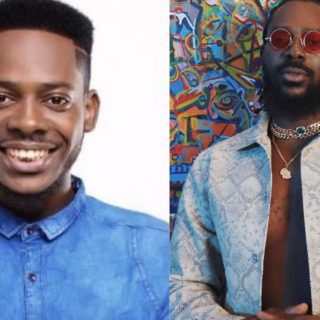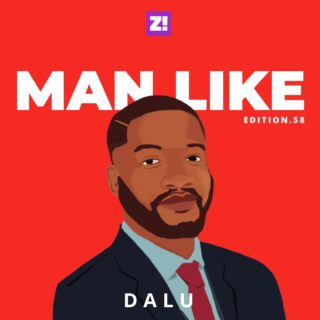What does it mean to be a man? Surely, it’s not one thing. It’s a series of little moments that add up. Man Like is a weekly Zikoko series documenting these moments to see how it adds up. It’s a series for men by men, talking about men’s issues. We try to understand what it means to “be a man” from the perspective of the subject of the week.
Today’s Man Like is Seni Oremodu, a 27-year old digital marketer. He talks about how his mother’s death and secondary school experiences made him lose his faith and interest in religion and dealing with an identity crisis.
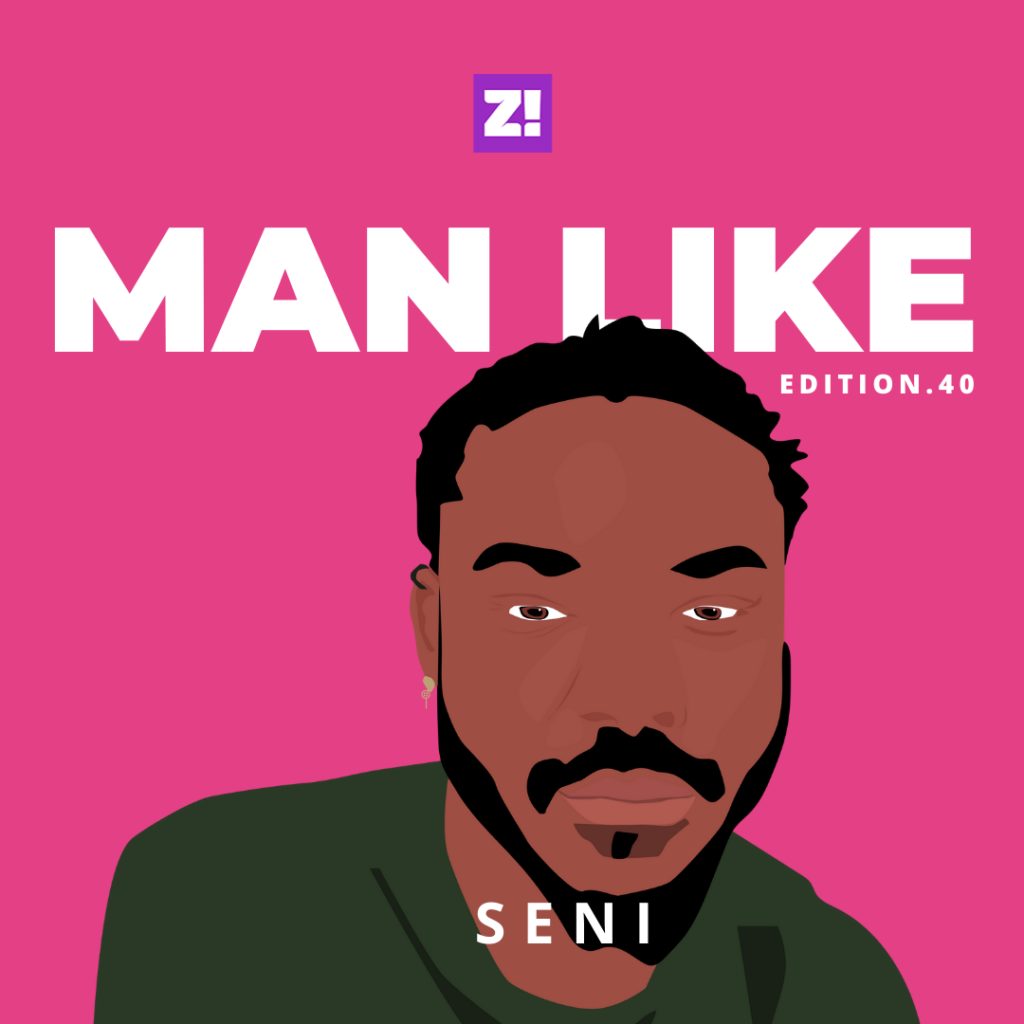
What did you see yourself doing when you were younger?
I wanted to be a pastor. Everyone thought I was going to be a pastor. Then I started asking questions about religion no one could answer. I moved on to science. I wanted to be a nuclear scientist, but Nigeria has a way of narrowing the scope of your dreams. I opted to study chemical engineering instead. When I was 18, I visited a friend and met someone making beats. I picked up an interest in music production, and I made beats to make extra money in uni. In 300-level, I teamed up with a drummer friend and formed a boy band named Publiq.
When I graduated, someone asked me to manage a couple of social media accounts because my tweets were funny. I had no idea how to manage accounts. I flopped my way through that job, so I took courses in digital marketing to learn it. Digital marketing wasn’t what I had in mind since I studied chemical engineering, but when I get involved with a topic, I become completely obsessed with it. That’s what happened with digital marketing. I worked as a digital marketer for a couple of years. Now, I’m the head of growth at Onboardly, a startup.
Wow. That’s quite the professional journey. Tell me all about losing your religion.
Ah. Well. I grew up in Port Harcourt. I wasn’t aware at the time, but we were poor. I couldn’t afford certain things, but my parents did their best to provide. I only realised that I wasn’t in the same social class as other kids when they showed off toys in school.
My mom died when I was 12 and that sent me down a spiral. Answers were not forthcoming when I asked questions, I read the entire bible, and it did little to satisfy me. I went on to read books about atheism by authors like Richard Dawkins, and I think it was in my teenage years that I swung into my agnosticism.
When I got into secondary school, which was a military school in Uyo, I completely disconnected from religion due to the abuse and bullying.
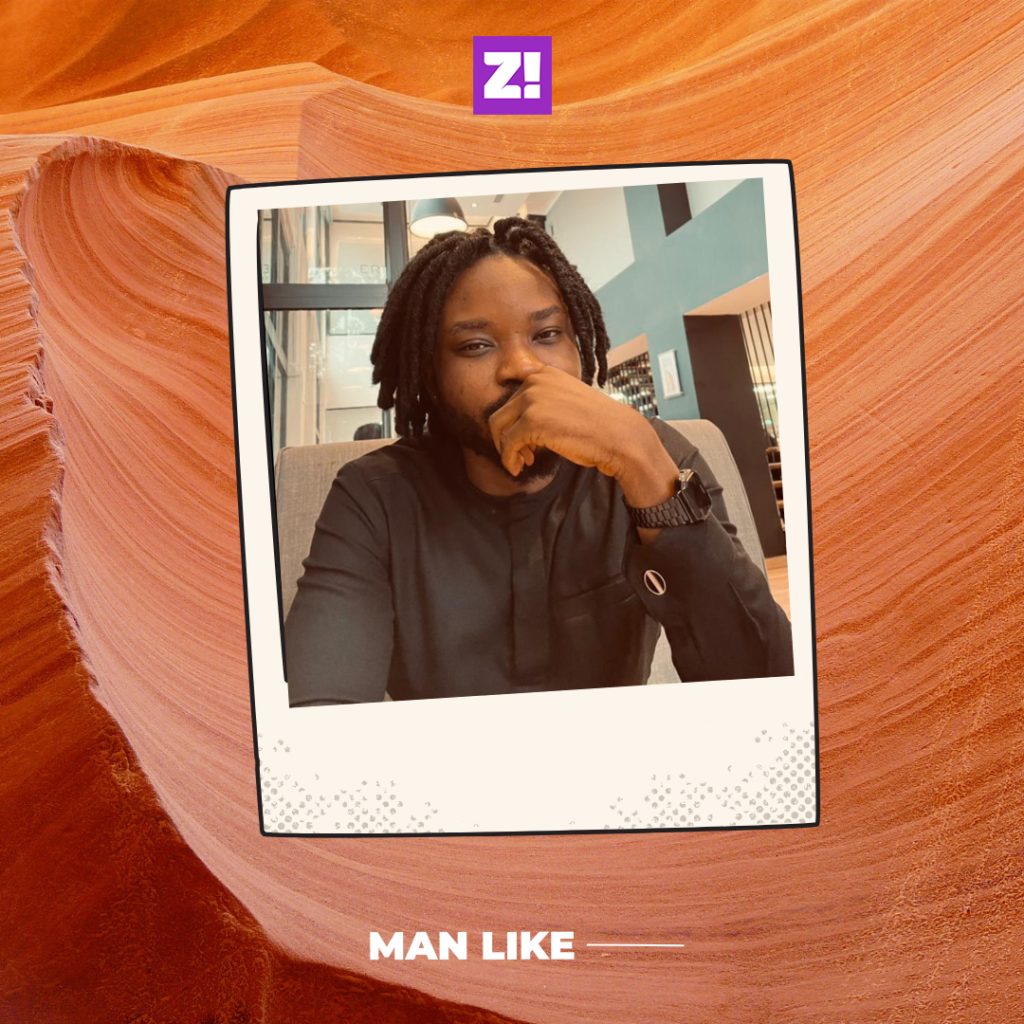
Wow.
My dad sent me to a military school because he had the idea that it would make me stronger. I was beaten every day. It was so bad that the junior students used to fantasise about how they would beat juniors when they were promoted.
Did it make me stronger? In a twisted way, yes. For example, I’m not afraid of soldiers. They beat us every day, so I don’t feel threatened when a soldier comes on the scene.
Did it affect your relationship with your dad?
I love my dad. I’m a lot like him. Because I was young when I lost my mother, my father’s character was heavily imprinted on me. He’s a very funny guy, and I got my sense of humour from him. I also got a lot of my morality from my dad. He used to make us do morning devotion every day, we always learnt something new.
I inherited his just-do-it attitude, and I’m really proud of that. He had a fixation on ensuring my siblings and I learnt the multiplication table. He forced us to learn it by heart, claiming that if we knew the table, math would be easy. True to form, math and chemistry became my favourite subjects, hence my obsession with nuclear science and later, chemical engineering. He made me understand that it’s not too late to chase anything that interests you. To him, when you stop experiencing new things is when you stop living. He actually went back to school six years ago to study law, at 62 years old. He’s due to be called to the bar this year.
He also taught me to be responsible. During my IT in 300-level, I was working in an oil company in Port Harcourt. My dad called one day and advised me to save up my money. When I was to resume 400-level, I asked my dad for money to pay my school fees. He laughed and said, “What did you think I was telling you to save for?” I paid my final year fees from my pocket.
LMAO. Who had the biggest impact on your idea of masculinity?
I’ve always struggled with my identity, having been born to Yoruba and Rivers parents. On one hand, I am a Rivers boy who spent my formative years in Port Harcourt, but I never really acclimatised because I was an indoorsy child. On the other hand, I’m a Yoruba boy in Lagos who can’t speak Yoruba. People often want to put me in a box and when I don’t fit neatly into any one, they’re not quite sure what to do with me.
I was still unsure of my identity when it was time for university. Then I met my cousin, Niggydip in UNILAG. He was the older brother I never had. He’s the one who advised me to study chemical engineering instead of electrical engineering, given my mathematical talents. He always looked out for me and made sure I was fine in school. He actually introduced me to puns. He took me under his wings, took me to shows and concerts while I was in school. He’s the kind of guy to make sure everyone around him was taken care of. I looked up to him for everything and actively tried to model my life after his.
In my final year in uni, he had a cardiac arrest while he was out jogging and slumped. Bystanders, instead of helping him, robbed him of his personal effects instead. I cried. I also missed his burial. On the day of his funeral, I had an exam scheduled. I rushed through the exams to try to make the ceremony, but I was too late.
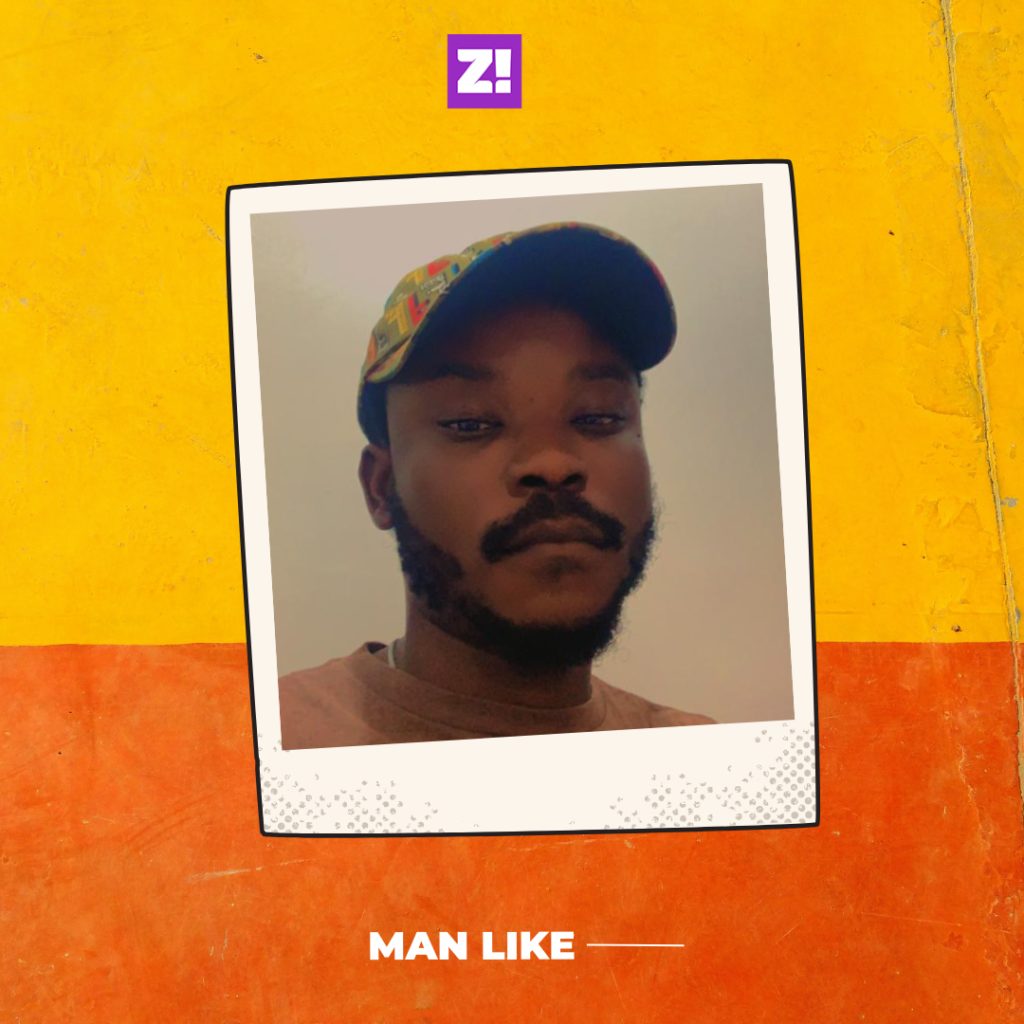
I’m sorry man. How did you deal with that?
You learn to move on. Life just has a way of going on, no matter how heavy the grief is in your heart. You grieve until you can talk about the person without breaking down every time. Life just has a way of going on, no matter how heavy the grief is in your heart. I learnt to move with the times because one minute, people are consoling you for your loss, the next, they’re back to tweeting about Lai Mohammed.
My support system also helped me get through it.
I’m glad. What are you looking forward to?
Because I didn’t grow up around a lot of money, I’ve been a content person. I can be stingy to myself. My career gradually went on an upward trajectory, and I started making more money but didn’t have much to spend money on. I’ve decided that I work too hard to deny myself things, so I’m trying to learn to buy things for myself and give myself treats like vacations. Like my dad, I believe the moment you stop experiencing things is when you start dying, so I intend to experience as much as I can. I want to travel and find things that I enjoy.
Check back every Sunday by 12 pm for new stories in the Man Like series. If you’d like to be featured or you know anyone that would be perfect for this, kindly send an email.
Are you a man who would like to be interviewed for a Zikoko article? Fill this form and we’ll be in your inbox quicker than you can say “Man Dem.”

